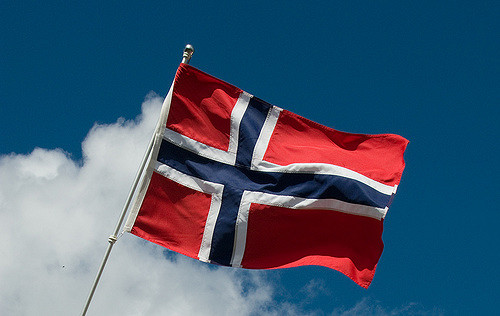Despite a weaker start to the year, Norway's KLP delivered a positive return on pension assets in the first half of 2025, also making further changes to its investments in line with its ambitions as a responsible investor.
The group's interim results confirmed that the return on pension assets in the collective portfolio was 3.1 per cent in the first half of 2025, while the solvency capital adequacy ratio remained "well above" the target of 336 per cent.
In addition to this, it delivered a profit of NOK 21.8bn in the second quarter, and NOK 18.1bn so far this year, meaning that its total assets increased to NOK 1,194.8bn.
"After a weak first quarter, the second quarter went well," KLP CEO, Sverre Thornes, said.
"This means that we have created good customer returns for our owners in municipal and health Norway. Good results are an important contribution to reducing our owners' pension costs."
The interim update also highlighted the group's ongoing work on responsible investment, building on the recent news that KLP and its funds had excluded Israeli technology company NextVision Stabilized Systems Ltd from its investments as it discovered that the company supplies key components for military drones used in the Gaza war.
In particular, the report confirmed that, in June, the group decided to exclude the companies Oshkosh Corporation and Thyssenkrupp for selling weapons or equipment to the Israeli Defence Force (IDF).
The group explained that it had performed a thorough assessment of the companies and engaged in dialogue with them after it first received reports in June 2024 that several named companies were supplying weapons or equipment to the IDF and that these weapons are being used in Gaza.
However, the group ultimately concluded that these companies violated KLP's guidelines as a responsible investor, and confirmed that it would divest from them.
Up until 16 June 2025, KLP and the KLP Funds owned shares worth around NOK 19m in Oshkosh and around NOK 10m in ThyssenKrupp.
The group said that an important factor in the decision to exclude the US and German companies was that they failed to document the necessary due diligence in relation to their potential complicity in violations of humanitarian law.
KLP also emphasised the companies’ long-standing collaboration with the IDF and that weapons deliveries have continued after the outbreak of the war in Gaza.
Thornes said: "KLP manages assets on behalf of over 900,000 Norwegians. It is a big responsibility and we do not want companies we invest in to contribute to violations of international law.
"Therefore, we conduct ongoing due diligence assessments of the companies we invest in. If we suspect that any of the companies are violating our guidelines, we initiate a dialogue with them and exclude those we believe are violating the rules.
Instead, the group has been increasing its focus on social infrastructure, having announced plans to invest NOK 1,150m in a new real estate fund that will buy and lease important buildings such as care homes, health centres, nursing homes, educational buildings and student housing throughout the country.
This is being done through a collaboration with the state-owned company Allstad and is expected to help the group's owners obtain financing for necessary investments while also providing a stable and secure return on pension capital.
The report also provided an update on KLP's work towards a new digital platform for pension processing, which confirmed that it has now completed the first phase of this work, providing a "major improvement" for everyone with pension rights in KLP.
"Labor shortages are a major challenge, so it is important to show the value of staying in work longer and the opportunity to continue working even after retirement," Thornes explained.
Latest News
-
Winners announced for inaugural Nederlandse Pensioen Awards
-
Sweden’s AP4 yields 6.3% return for 2025
-
Sweden's AMF delivers 6.2 per cent return in 2025 amid market uncertainty
-
News in brief: 20 February
-
Black Arrow Group pension scheme completes £7m buy-in with PIC
-
Dutch pension funds report improved January funding positions
Podcast: Stepping up to the challenge

In the latest European Pensions podcast, Natalie Tuck talks to PensionsEurope chair, Jerry Moriarty, about his new role and the European pension policy agenda
Podcast: The benefits of private equity in pension fund portfolios

The outbreak of the Covid-19 pandemic, in which stock markets have seen increased volatility, combined with global low interest rates has led to alternative asset classes rising in popularity. Private equity is one of the top runners in this category, and for good reason.
In this podcast, Munich Private Equity Partners Managing Director, Christopher Bär, chats to European Pensions Editor, Natalie Tuck, about the benefits private equity investments can bring to pension fund portfolios and the best approach to take.
In this podcast, Munich Private Equity Partners Managing Director, Christopher Bär, chats to European Pensions Editor, Natalie Tuck, about the benefits private equity investments can bring to pension fund portfolios and the best approach to take.
Mitigating risk
BNP Paribas Asset Management’s head of pension solutions, Julien Halfon, discusses equity hedging with Laura Blows
© 2019 Perspective Publishing Privacy & Cookies







Recent Stories